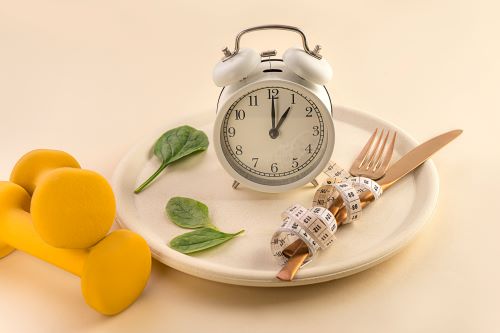Weight Loss for Transplant

As you may know, people living with end stage kidney disease (ESKD) rely on dialysis treatments to live. However, dialysis is just one treatment option. DaVita believes kidney transplant is the ideal treatment option for eligible patients. A kidney transplant can give someone with ESKD a longer, better quality of life. With a transplant, patients may live up to 10 years longer than those who remain on dialysis. Kidney transplant recipients may also have more energy, fewer diet restrictions, and be able to work, travel, and spend more time with family and friends.
Transplant Requirements
Deciding to pursue a kidney transplant is a process with specific conditions and testing to make sure the transplant has the greatest chance of success. Once a patient is referred to a transplant center, they are given a list of requirements to complete to be considered eligible for transplant. One of the requirements often involves a patient’s weight, measured as body mass index (BMI). BMI is an estimate of your body fat based on your height and weight. A common cut-off for transplant consideration is a BMI of 35-40. It is important to note transplant centers have their own criteria for BMI.
Why is body weight (and BMI) a factor?
Obesity is linked to an increased risk for surgical infection, poor wound healing, and rejection of the donated kidney. Specifically, having a larger abdominal girth would mean a larger incision, involving more tissue and an increased risk for infection. A high BMI is also associated with high blood pressure, high blood sugar, inflammation and increased risk for cancer. (1)
Diet and Lifestyle Changes to Promote Weight Loss
If you are trying to lose weight to become eligible for transplant, think about making lifestyle changes in these areas: diet, exercise, proper sleep and stress management. When making changes in diet or lifestyle, studies have shown that changing only one or two things at a time works best. So, start small. When those changes become habits, you can set new goals. (2)
A weight loss goal of 1-2 pounds per week is slow and sustainable for most people. Extreme dieting and rapid weight loss are not healthy or sustainable. Also, studies show that losing more than 10% of body weight over a short period of time can cause bodily stress, lead to nutritional deficiencies, and lead to increased risks during transplant surgery. (3)
Here are ideas that may help jumpstart your weight loss journey:
- Avoid drinking calories: Stay away from juice, soda and sugar-sweetened beverages.
- Use smaller plates for meals so you eat less.
- Share a meal when eating in a restaurant.
- Eat more fruits and vegetables.
- Focus on protein with each meal.
- Avoid fried foods and high-calorie desserts and snacks such as donuts, cookies, chips and crackers. Instead, look for food that is baked, broiled, grilled, poached or roasted.
- Increase daily movement as you are able. Try activities such as walking, armchair aerobics, and even household activities such as cleaning and gardening.
- Focus on getting good sleep and managing your stress. Poor sleep and high stress are associated with increased hunger hormones and can have a negative effect on weight management.
- Try these delicious, kidney-friendly recipes from DaVita.com:
- Acai Berry Smoothie Bowl
Get help from your dietitian
Making lifestyle changes to lose weight can be hard and usually requires goal setting and commitment. It is important to involve your dietitian at your dialysis center and/or transplant center. They can help you set and achieve your weight loss goals.
Read more about transplant and weight loss
5 Steps: How Do You Get a Kidney Transplant?
Weight-Loss Dieting When You’re on Dialysis
References
(1.) https://www.ncbi.nlm.nih.gov/pmc/articles/PMC10255583/
(2.) https://thedocskitchen.com/national-weight-control-registry/
Additional Kidney Diet Resources
Visit DaVita.com and explore these diet and nutrition resources:
DaVita Kidney-Friendly Recipes
This article is for informational purposes only and is not a substitute for medical advice or treatment. Consult your physician and dietitian regarding your specific diagnosis, treatment, diet and health questions.

Recent Comments